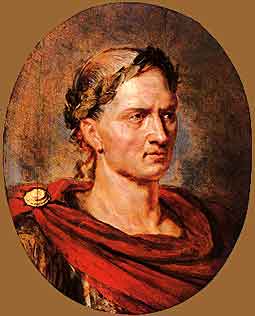Although his rival was eliminated, much work remained to make Caesar's position secure. He adopted a policy of special clemency, or mercy, toward his former enemies and rewarded political opponents with public office. For himself he adopted the old Roman position of dictator, a ruler with absolute power.There has been much debate about what political role Caesar planned for himself. He certainly thought the old government was weak and desired to replace it with some form of rule by a single leader. Just before his death, Caesar was appointed dictator for life. About the same time, he began issuing coins with his portrait on them, something never before practiced in Rome up to that time. Caesar was planning major improvements to transform the capital of the empire he commanded. New colonial foundations were under way, and he reordered the defective Roman calendar.In Rome dissatisfaction was growing in the Senate over the increasingly permanent nature of Caesar's rule. A conspiracy (secret plan) was formed to remove Caesar and restore the government to the Senate. The conspirators hoped that, with Caesar's death, government would be restored to its old republican form and all of the factors that had produced Caesar would disappear. The conspiracy progressed with Caesar either ignorant of it or not recognizing the warning signs. On the Ides of March (March 15), 44 B.C.E. , he was stabbed to death in the Senate house of Pompey by a group of men that included old friends and allies.
With Caesar's murder, Rome plunged into thirteen years of civil war. Caesar remained for some a symbol of an over-dominant leader, and for others the founder of the Roman Empire whose ghost has haunted Europe ever since. For all, he is a figure of genius and courage equaled by few in history.


No comments:
Post a Comment